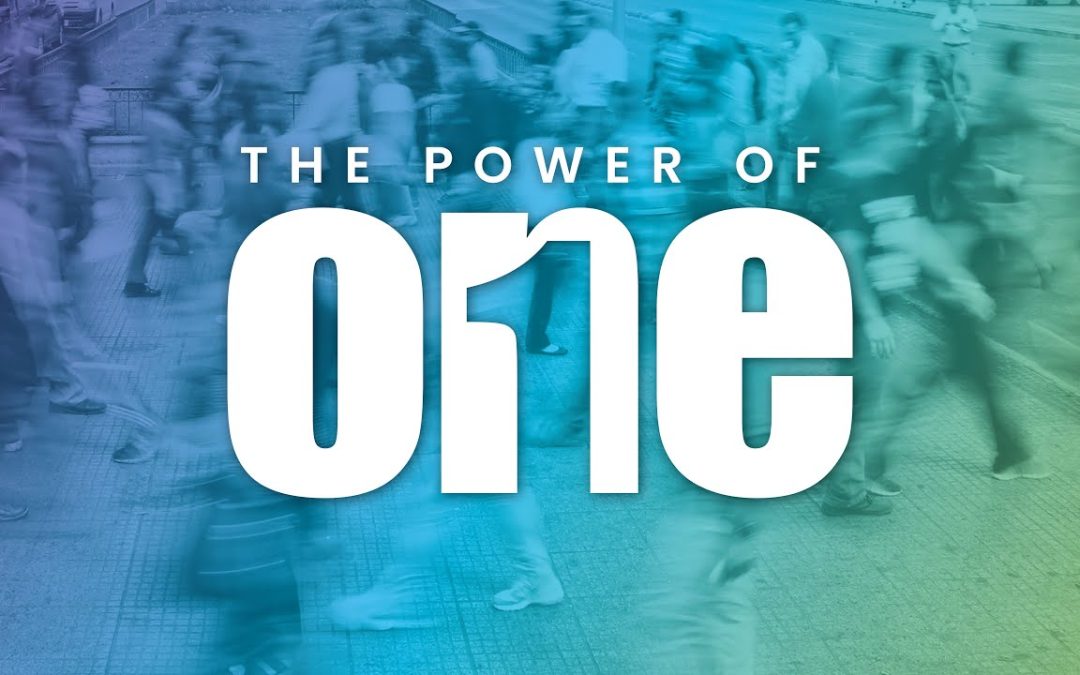Sermon Notes
Sermon Series: The Power of One
Verses: Matthew 9:9-13
To be the greatest church, we must follow the greatest commandment from the greatest person for the greatest glory.
The Great Command (In 2 Parts)
- Love God with all you got
- Love Others as best as you can
Matthew’s Conclusion:
- Teaching them to observe whatsoever I have commanded you
Tax Collectors
- Knew the Language/Culture/Location
- Contracted with the Roman Government to collect taxes
- The more money they extorted, the more they could keep for themselves
- Were considered ceremonially unclean and unfit for religious service.
Jesus shows us how to treat people who are on the outside of a faith relationship with him.
Also, Jesus had the greatest right to be condescending yet consistently offered the greatest compassion.
1. Jesus sees potential in the most unexpected places. Matthew 9:9-12)
2. Jesus connects with people in unexpected ways.
(Matthew 9:10, Luke 5:29)
3. Jesus remained deeply committed to his mission- to call sinners.
Jesus
- Was comfortable with all kinds of people.
- But never condoned any kind of sin
Jesus contrasted the difference between mercy and sacrifice.
The Hebrew Term Kindness (חֶסֶד)
the kindness of men towards men, in doing favors and benefits
The Greek Term Mercy/Kindness (ἔλεος)
mercy: kindness or goodwill towards the miserable and the afflicted, joined with a desire to help them
How can you show compassion towards sinners?
- You need to be able to take some small risks.
- You need to engage them on their turf and terms.
Application:
Let’s review our Neighboring Toolkit
Discussion Questions
TALK IT OUT:
- Jewish tax collectors knew the language and culture of their day. The more money they extorted from the people the more they got to keep for themselves. They were considered ceremonially unclean and unfit for religious service. Who in today’s culture might be seen as dishonest and unworthy of God’s love?
- Jesus shows us how to treat people who are outside of a faith relationship with Him. How surprised do you think people in His day were when Jesus invited Matthew, a hated tax collector, to follow Him?
- Pastor Rusty notes that Jesus had the greatest right to be condescending yet consistently offered the greatest compassion. How can we, as His followers, follow His example in how we deal with others?
- Jesus sees potential in the most unexpected people. How can this fact encourage those who are tempted to give up on themselves?
- By eating with Matthew and other tax collectors, Jesus demonstrated He connects with people unexpectedly. What surprising ways do you think Jesus might connect with people in our culture?
- Jesus remained deeply committed to His mission of calling sinners to Him. Pastor Rusty observes that Jesus demonstrated this by being comfortable with all kinds of people. What should the fact that Jesus, who was God, was also comfortable with sinful people teach us about how we are to relate to others?
- Despite Jesus’ comfort with sinful people, He never condoned sin of any kind. What can those of us who are His followers learn from His example?
- Pastor Rusty points out that Jesus contrasted the difference between mercy and sacrifice. The Greek word used in verse 13 for mercy speaks of kindness or goodwill extended toward those who are afflicted, joined with a desire to help them. Why do you think Jesus said mercy is more desirable than sacrifice?
LIVE IT OUT
- List three small risks God wants you to take to show compassion to sinners.
- List three ways you can engage sinners on their own turf and terms.
- Select one small risk and one way to engage sinners which you wrote down and commit these two things this week.
- Review the Neighboring Toolkit to determine how you will put today’s challenge into practice.
- Ask God to use you to communicate His love as you do these things this week.

